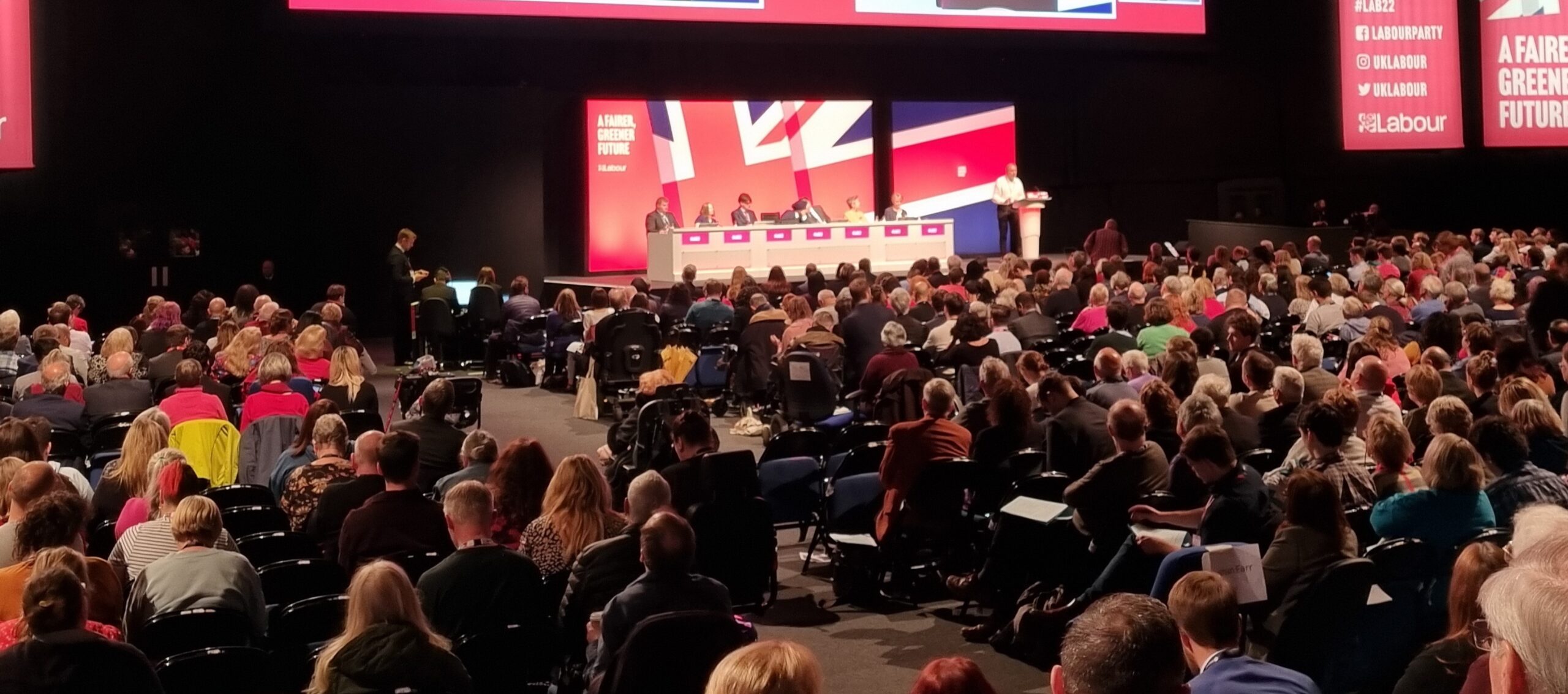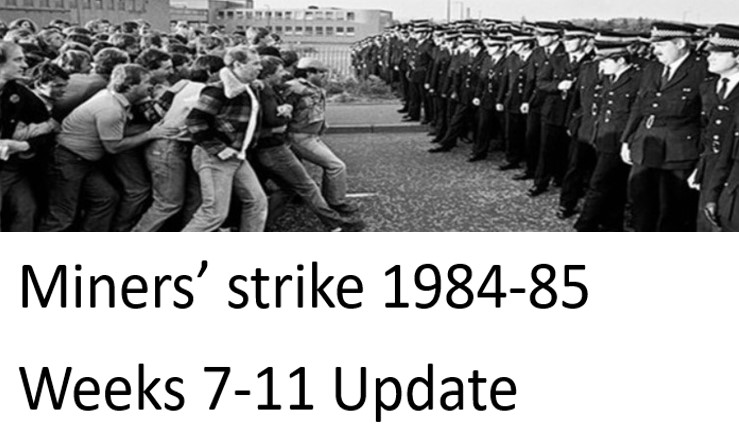By Left Horizons reporters.
Labour Party conference opened its third day with the news that the pound sterling had tanked on the international markets, that big mortgage lenders were temporarily suspending some deals and that there was speculation about 5% or 6% interest rates by next year.
Simultaneously – and as a direct result of the economic chaos swirling around the Tory government – The Times reported a YouGov poll showing Labour 17 points ahead. Being so far ahead in a poll might lead some Party members,, not unreasonably, to ask, “given the most corrupt government in modern times and a disastrous death toll from Covid, what took it so long?”. But such questions would be frowned upon at this conference.
The Tories are trashing the British economy, even by the standards of their much-beloved market, and an idea will take root among business bosses and some of the media that the election of a Starmer/Reeves government is necessary to put the economy right. That does not mean a Labour administration acting in the interests of working people and their hard-pressed households, but one that follows the dictates of rent, interest and profit.
As we reported yesterday, the left is far less in evidence at this conference than even last year. With conference managed in such a way that there is a long line of Shadow ministers getting their chance at the rostrum: Steve Reed, Emily Thornberry, Yvette Cooper, Lucy Powell, Jim McMahon, David Lammy and John Healey, to name a few. Tomorrow it will be Wes Streeting, the darling of the media.
Rostrum increasingly dominated by councillors and PPCs
It all makes for a conference devoid of much value to anyone on the left. It has even been remarked that many of the rank-and-file speakers are getting to the rostrum less and less as conference goes on. It seem to be all Prospective Parliamentary Candidates, councillors and other worthies.
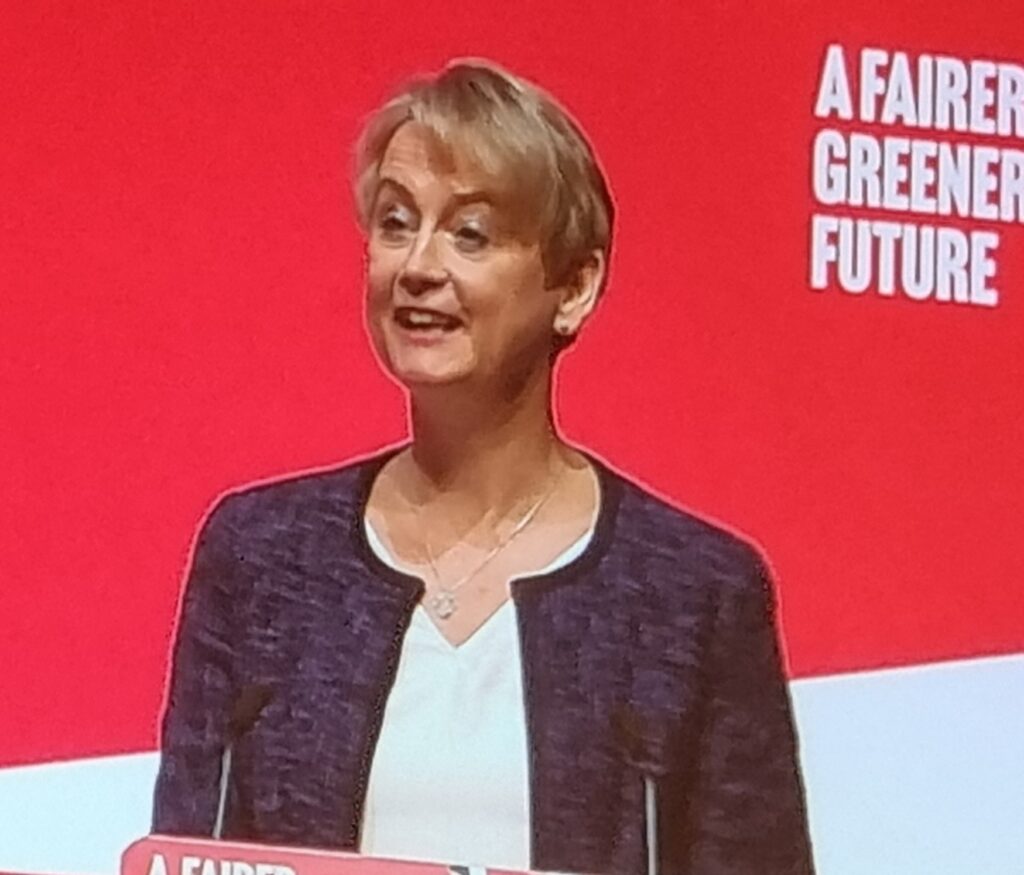
On the third morning of conference, there was nonetheless one good session in the morning: on issue of misogyny and the rights of women and girls to pursue their lives without the threat of violence. Many delegates spoke in this discussion, mostly women, bringing real-life experiences and problems into the conference, as was the case yesterday in the economic discussions.
The full text of the resolution, composite 11, which was eventually passed overwhelmingly on a show of hands, was as follows:
Women and girls in Britain are suffering from misogyny, expressed in sexual harassment, domestic abuse and death.
Currently, not all police forces around the country record Misogyny.
We call upon the Labour Party to campaign for the following:
1. Legislation to make misogyny a hate crime, to be recorded as such by all police forces across the UK and prosecuted by the Crown Prosecution Service. Currently only 12 police forces do this.
2. That police forces should be required to record all instances of femicide, the killing of a woman or girl by a man, with immediate effect.
3. Assess the extent and impact of incel (involuntary celibate) groups both online and offline and to work with voluntary groups and experts who have already begun work in this field.
4. That policing resources should be increased to ensure that police forces are able to deal with these new responsibilities.
Keir Starmer’s speech in the afternoon
The day was dominated by the early afternoon set speech of the leader. It was well trailed in the newspapers and on the BBC, long before he spoke, and in the eyes of the commentariat Starmer has succeeded in leading Labour to the position that Blair had in 1997. His session was carefully choreographed, like the session yesterday with Rachel Reeves, as organisers made sure that the auditorium was packed and had a good supporting body of MPs, peers and other notables to cheer the leader.
The main thrust of the speech was that Labour is now supposedly back in the “centre ground” of British politics, just at a time when the centre ground is losing all meaning. He claimed that Labour was in tune with the majority of voters, and was “the political wing of the British people”, although he is in fact to the right of the majority of the electorate on the public ownership of utilities.
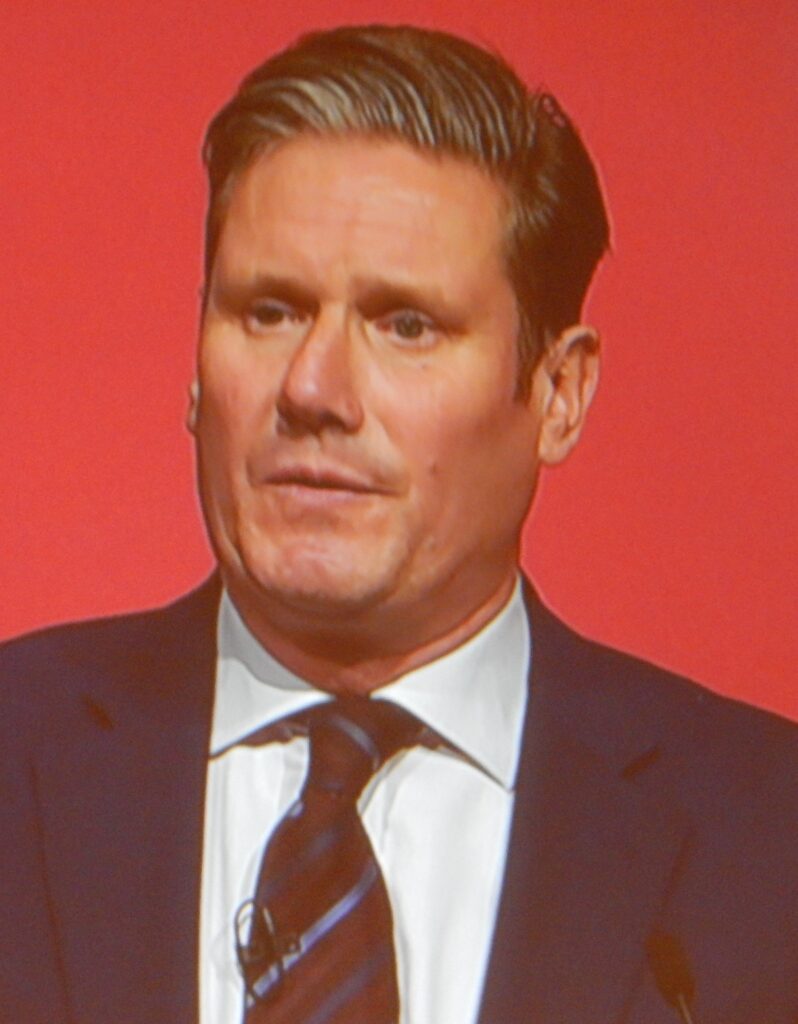
Keir Starmer has indeed returned Labour to the 1997 vision of Blair and New Labour. Although Shadow ministers made many promises during the course of their conference speeches, some of them repeated by Keir Starmer, the leader emphasised, as Rachel Reeves had done, that Labour is the party of “sound finance”. In other words, every one of the commitments is qualified by an underlying assumption that they have to be affordable. Or not.
The only real surprise was Starmer’s promise to introduce a state-owned energy company – Great British Energy – although its form and function was not outlined. Delegates will get the idea that this might be a publicly owned energy company competing with the energy giants, and that was no doubt the intended impression. But given the huge political clout of the energy giants – a degree of influence that the Labour right would not challenge – it might just as easily be a state institution that facilitates the profiteering of the energy companies, although in a more organised manner. We just don’t know yet.
Even before Starmer spoke, seeing the press comments, right winger Wes Streeting told the BBC that he felt “more confident about Labour’s ability to take over government than at any point since the last Labour government.” Indeed, Streeting, Lord Mandelson and the whole cabal of Labour’s hard right will be very satisfied by Starmer’s speech and the outcome of the conference.
Palestine reference back failed
After Starmer’s set speech, a spark of protest had been anticipated in what in the past would have been called the ‘international’ session but was now titled ‘Britain in the World’. There was no resolution on the issue of Palestine, but it featured in a reference back that was moved by Labour International.
The reasoning behind the reference back was that a resolution on Palestine had been passed overwhelmingly by conference last year and they argued that the official policy document on world and international affairs was completely inadequate. Their statement read:
A document about broad world affairs that makes only fleeting mention of the grave situation faced by the Palestinian people is not credible. The report must include proper recognition of the situation in Palestine and proposals on what must be done to start to rectify them. This is a point of democratic principle and of policy. The following passage relates directly to the motion passed by the 2021 Annual Conference and must be included…
“Labour is clear that the illegal actions of the Government of Israel must cease. Israel must stop the building of settlements, reverse any annexation; end the occupation of the West Bank and the blockade of Gaza; bring down the wall and respect the right of Palestinian people to return to their homes.”
In the event, on a show of hands, the vote on the reference back was very close and some delegates thought it was actually passed. But when a card vote was called for, the chair, in defiance of standing orders, refused to hold one. It seems the rules only apply when they are deployed against the left.
Conference follows the leader in going full NATO
As regards the other elements of the discussion on international issues, the conference followed the leadership in going full NATO. A young delegate who tried to criticise the Ukrainian government, for example over cutting workers’ rights, was virtually howled down.
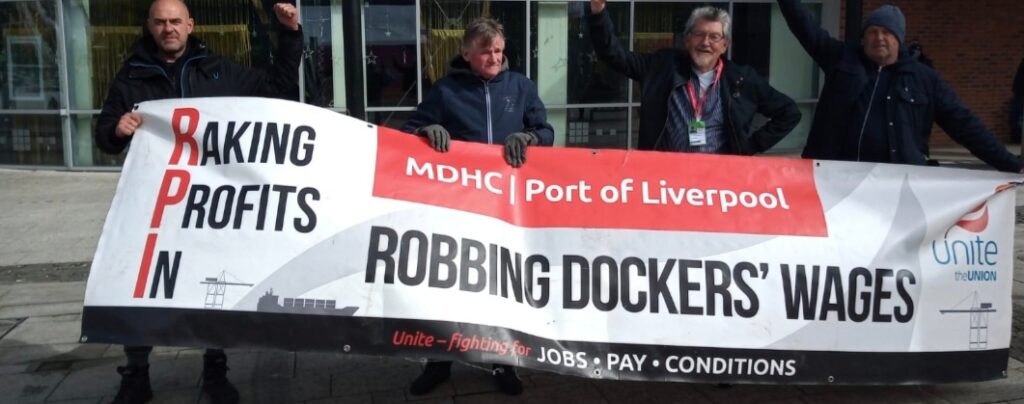
The conference, even shifting to some extent in three days, has confirmed the whole Starmer project as New Labour Mark II. His election as leader was a political fraud and he would not have been elected at all without the ‘10 pledges’ he cynically put forward. Many good Party members believed in the pledges, only for them to be unceremoniously dumped. It clear to some of us from the beginning – from the hard-right wing backers he had – what the Starmer leadership would be doing. The obvious question arises, of course, that if Keir Starmer can so easily dump the ten pledges that got him elected, why should anyone believe the pledges he makes at Labour conference?
The aim of the Starmer project all along has been to make the Labour Party safe for capitalism. He has finally succeeded in that, and it is an idea that will begin to seep into the editorial rooms of some newspapers and media. The Tories are in such a deep crisis, economically and politically, that we may not have to wait until 2024 for the next general election and this Labour leadership, a safe ‘Second Eleven’ again, are now available to pick up the pieces of a system in crisis.
Economic and social hurricane blowing outside
What the Labour right wing (and not a few on the left) do not understand, however, is that conditions in 2022 are not the same as they were in 1997. The economic crisis of British capitalism runs far deeper today, and the social contradictions and conflicts are far sharper. There is an economic and social hurricane blowing in the real world outside the Liverpool conference centre, represented above all by the deepest cuts in living standards for decades.
If Labour is elected to office, therefore, there will be much less scope even than there was in 1997 for reforms and improvements in the daily lives of working class households. It would not be the Starmer government that dictates to the system, it will be the system dictating to the Starmer government.
The arguments about policy that have been effectively smothered by the leadership and the right wing at this conference, with the acquiescence it has to said, of the leaderships of the big right-wing unions, will be come back with a vengeance after Labour wins the next election. We look forward to it.
There will be no report of Day 4 of conference, it being only a half day. This writer has no intention of sitting through another morning of Shadow minister speeches, like Wes Streeting’s, and is going home. There will, however, be an editorial ‘summary’ of conference in a day or two.

